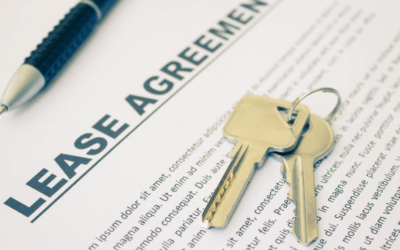When negotiating a commercial lease, both landlords and tenants must understand the implications of a personal guarantee clause. For landlords, it offers financial protection. For tenants, it can expose personal assets to significant risk. Striking the right balance helps build a fair and sustainable business relationship.
What Is a Personal Guarantee?
A personal guarantee is a clause that holds an individual, often a business owner, personally liable if the tenant entity fails to meet its lease obligations. If the business defaults, the landlord can pursue the guarantor’s personal assets for unpaid rent or damages.
For Landlords
Personal guarantees help reduce the risk of leasing to new or undercapitalized businesses. They ensure that if the tenant’s company folds, there’s still a person responsible for payment.
For Tenants
While a guarantee may be required, it can be negotiated. Signing blindly can put personal savings, property, or credit at risk if the business faces financial hardship.
Risks and Benefits
- Landlords benefit from additional security and leverage in case of default.
- Tenants risk personal financial exposure even after the business fails.
Because the stakes are high, both parties should treat this clause as negotiable; not boilerplate.
How Tenants Can Limit Exposure
- Propose a “Good Guy” Guarantee:
The guarantor agrees to remain liable only while occupying the space. If the tenant gives proper notice and leaves in good condition, personal liability ends. - Negotiate a Cap:
Suggest limiting liability to a specific amount (for example, six months of rent). This gives landlords partial protection without overburdening tenants. - Set a Time Limit:
The guarantee might expire after one or two years of on-time payments, proving reliability and reducing long-term exposure. - Tie It to Company Performance:
Once the business meets certain revenue goals or profitability benchmarks, request that the guarantee be lifted. - Clarify Default Conditions:
Ensure the guarantee applies only to financial defaults (missed rent) and not minor lease violations.
How Landlords Can Protect Themselves
- Assess Financial Strength:
Before requiring a guarantee, review the tenant’s financials. Established tenants may not need one at all. - Consider Alternative Security:
A larger security deposit or letter of credit can reduce the need for a broad personal guarantee. - Use Proportionate Terms:
If multiple business owners are signing, specify that each guarantor is liable only for their ownership share. - Be Transparent:
Explain why the guarantee is necessary. Clear communication fosters trust and prevents disputes.
Legal Review Is Essential
Whether you’re a landlord drafting a lease or a tenant negotiating terms, a commercial lease attorney who is familiar with NJ real estate can ensure the guarantee is fair and enforceable. Poorly worded clauses can lead to years of litigation.
Abdou Law represents both landlords and tenants throughout New Jersey, helping them structure leases that protect their rights while promoting healthy, long-term business relationships. Before signing, have our experienced attorneys review your lease to safeguard your financial interests. Contact us today.



